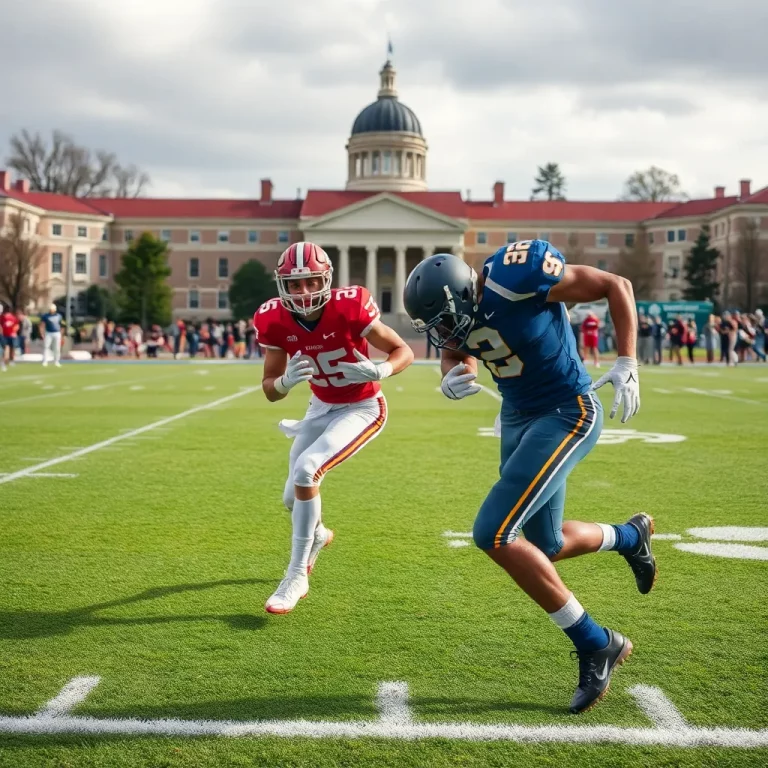Columbus, Ohio — As the excitement builds for the upcoming college football season, top athletes like Jeremiah Smith from The Ohio State University and Arch Manning from the University of Texas are preparing to face off on the field. However, the true battle could take place in Washington D.C., as discussions around college athlete rights take center stage.
In recent years, college sports have seen a significant shift in the treatment of student-athletes. With gains in labor rights, athletes can now change schools without penalties, sign endorsement deals, and receive payments directly from their universities. This creates a stark contrast to the traditional view of college sports as purely amateur.
The NCAA, which oversees millions of athletes across numerous colleges, has voiced concerns about maintaining a level playing field amidst these changes. The organization seeks to regain some control through potential legislation being pushed in Congress, notably the SCORE Act. This legislation aims to limit legal challenges against the NCAA’s authority and prevent universities from classifying athletes as employees.
Under the administration of President Donald Trump, an executive order was signed to support these changes, which prioritizes the stability of college sports. This order directs the National Labor Relations Board to clarify the employment status of college athletes, raising concerns among labor rights advocates about the future of collective bargaining for players.
Supporters of the SCORE Act believe it is necessary to create guidelines for athletes and ensure that college sports can continue to thrive amid chaos. It is seen as a way to prevent a deeper divide within the sports community, particularly for less prominent athletic programs. Advocates for players, however, fear that these measures could roll back beneficial rights that have been fought for over the years.
As collegiate sports gear up for the 2025-26 season, changes are already in motion. A recent court ruling allows schools to directly pay their players, with a cap of $20.5 million for participating schools. Despite this progress, the legal landscape remains complex, leading the NCAA to advocate for the SCORE Act, which its supporters argue would stabilize and protect the future of college sports.
As the new season approaches, players, coaches, and fans are left wondering how these legislative efforts will shape the world of college athletics. With the financial landscape rapidly changing, the focus may soon shift from touchdowns to political touchdowns.


